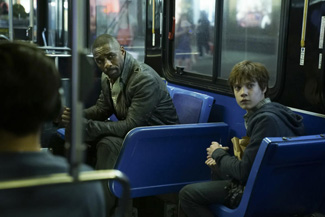|
|
Movie Review: The Dark TowerBy Ben GruchowAugust 10, 2017
In all fairness, the movie makes it pretty clear that Walter wants to bring the tower down and end the world, so he does have agency. Roland has agency, too; his main goal is to exact revenge on Walter for killing everyone he once cared about. Into this wilderness wanders Jake Chambers, a boy from New York City. Jake is a powerful telepath and seer; he dreams about a tower, and a gunslinger, and a man in black, draws disturbing pictures of them upon waking up, and slowly becomes convinced that the dreams are something more significant than REM cycles. Perhaps it’s the frequent earthquakes that have been rattling New York lately. Perhaps it’s the strange people from the juvenile treatment facility upstate, who have faces that look strangely like masks. We must ultimately hazard a guess, because the movie is in too much of a hurry to actually show us the point where Jake becomes a believer in metaphysics and prophecy. These opening stretches of the film, which are mostly concerned with Jake and his growing imperative to find a way into the deserted land he keeps dreaming about, are where the movie holds most of its promise. It is absolutely a corrupted and superficial treatment of the source material, for sure; as objective cinema, it’s at least moderately successful in projecting mystique and atmosphere, and we can start to buy into the idea that there’s another world floating just out of Jake’s reach.
|

|
|
|

|
Friday, November 1, 2024
© 2024 Box Office Prophets, a division of One Of Us, Inc.


